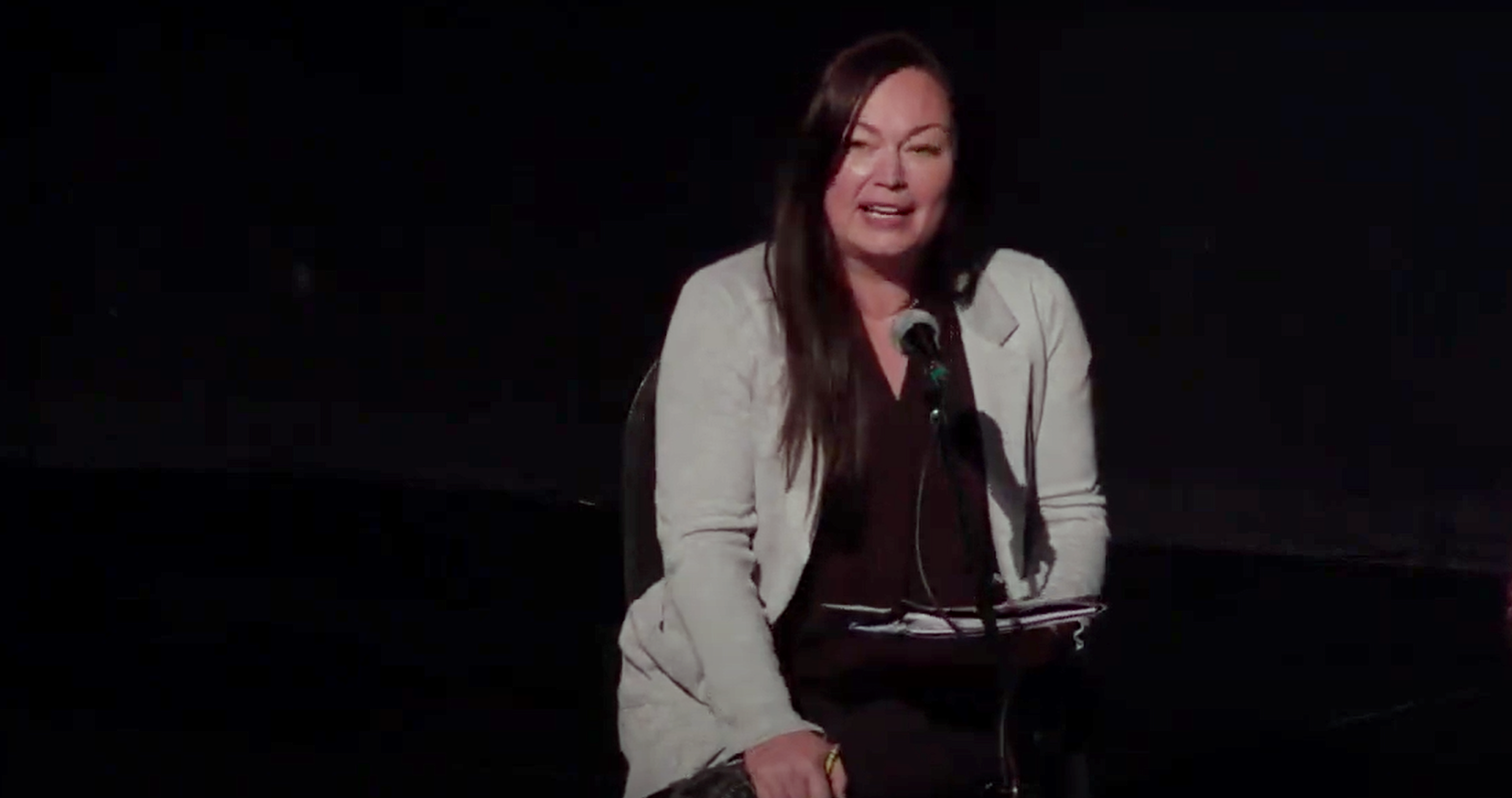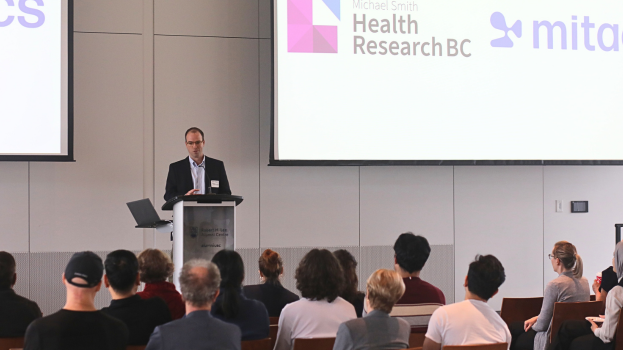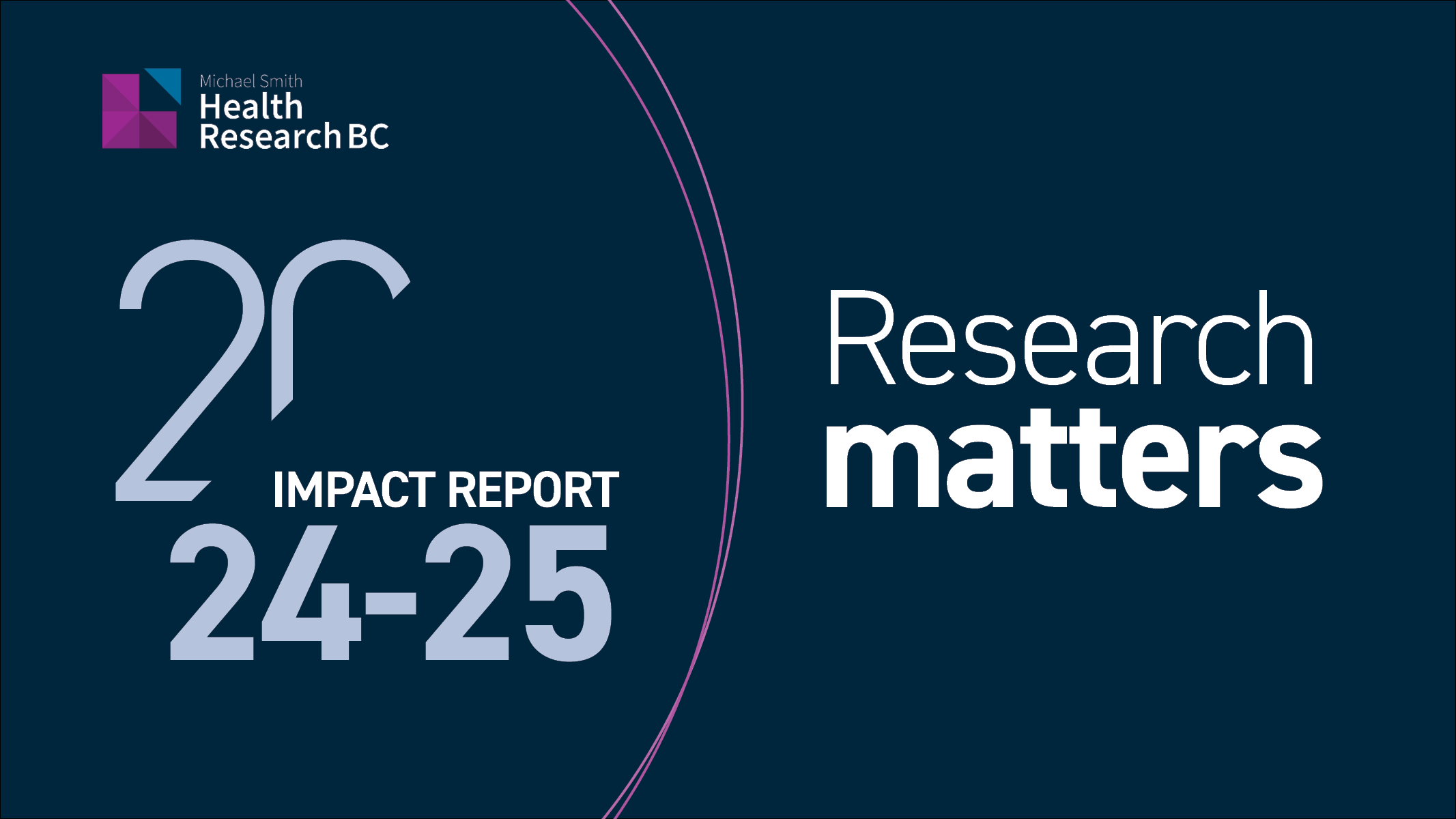A woman’s journey from patient harms to restoring trust in health care
25 May 2023

Allison Kooijman speaks about her research on a restorative approach to patient harms in health care.
“I never thought the academic path was possible for me,” says Allison Kooijman, PhD student at the School of Nursing at the University of British Columbia, Okanagan. “After an unnecessary medical procedure left me disabled, I felt incredibly isolated, unlucky and shunned. My healing journey led me to ask questions that had no answers. It became clear that only new research could change how the health system deals with patient experiences of harm.”
Despite efforts to improve patient safety, about one in 17 hospital stays in Canada between 2021-22 involved unintended harms. Evidence shows that patients suffer injury to their mental, physical and financial wellness because of health care harm. But patients aren’t the only ones affected. Health care providers may be blamed and punished for the error, and many live with guilt, distress and fear following the event. With this high rate of error and real consequences for people’s lives, it’s vital that responses to patient harm don’t result in more pain and hurt.
“I have a background in nursing and worked in long-term care, so I bring the lens of both the patient and care provider to my research,” says Allison. “When there’s an error and patients are harmed, we need to address the needs of everyone affected, patients, their families and also care providers.”
When a patient complaint occurs, a legal process begins that automatically sets up patients and care systems as adversaries. Legislation may prevent patients and families from getting the answers and engagement they need. In a system where health institutions focus on managing risk instead of building compassion, there’s little room for recovery.
Allison’s case went to trial, where she was thrust into a complex legal process that was challenging to navigate. The experience was damaging, not only for her, but also for the care team. There were no winners, and the result was hurt and distrust.
Although these experiences were difficult and painful, Allison believed research could provide an alternative. She wanted to find a way to support healing after a patient is harmed, to avoid and overcome the barriers to recovery. That’s why she identified a restorative approach to repair relationships after a harmful care event.
The restorative approach promotes open and transparent conversations, avoids litigation, and values listening and sharing to improve future care. It brings people together in an open conversation about what really happened that resulted in patient harm, what recovery means to everyone involved, and what can be done to prevent similar harm from happening again.
“Legal frameworks are pulling people apart. It’s messy and difficult to navigate.” says Allison. “We need compassion and togetherness, not fear or shame, when working to resolve an error. That’s why I’m proposing a restorative approach, which is both dignified and humanizing.”
With support from the BC SUPPORT Unit and Health Research BC, Allison was able to bring key people together to develop a research agenda. This included the leading Canadian expert in the field, Dr. Jennifer Llewellyn, whose work on restorative justice greatly influenced Allison’s work.
“Why take a restorative approach? It puts relationships at the centre of how we understand what is happening and respond to what is needed,” says Jennifer Llewellyn, Chair in Restorative Justice at the Schulich School of Law at Dalhousie University. “And we all live in relationship with one another and through our systems and networks – understanding this is key to securing our health and wellbeing.”
The BC SUPPORT Unit, part of Health Research BC, is a provincial initiative that champions the participation of people with lived experience and communities in research and improves ways to put this research evidence into practice. The BC SUPPORT Unit Interior Centre connects care providers and decision-makers at Interior Health with the region’s academic, patient and community partners. In 2022, Allison received a Health System Impact Fellowship for her work on long-term care and COVID-19, which is co-funded by the Canadian Institutes for Health Research, Health Research BC and Interior Health. In 2020, Allison was part of a team that received a Convening and Collaborating Award from Health Research BC.
Allison is bringing her restorative approach to long-term care in collaboration with Interior Health. The pandemic revealed many limitations in the long-term care setting. Allison is now working to build resilience and reimagine these homes as a community of care.
“I feel very grateful that I could make meaning out of suffering and draw something good out of tragedy,” says Allison. “When it was darkest, this work was my light, my purpose to keep going. I was able to translate my pain into something that can benefit patients, people like me. It’s tricky, and it’s going to take all of us to make these changes together.”
RESOURCES
Betsy Lehman Center for Patient Safety. (2019). The Financial and Human Cost of Medical Error…and how Massachusetts can lead the way on patient safety. Betsy Lehman Centre. Retrieved April 13, 2023 from https://betsylehmancenterma.gov/research/costofme.
Chan, S. T., Khong, P. C. B., & Wang, W. (2017). Psychological responses, coping and supporting needs of healthcare professionals as second victims. International Nursing Review, 64(2), 242-262. DOI: 10.1111/inr.12317
Healthcare excellence Canada (2022). Hospital harm is everyone’s concern. Retrieved April 13, 2023 from https://www.healthcareexcellence.ca/en/what-we-do/all-programs/hospital-harm-is-everyones-concern/
Kooijman, A. (2021). Healing after healthcare harm : the potential of a restorative approach [Master’s thesis, University of British Columbia]. Retrieved May 9, 2023 from https://open.library.ubc.ca/soa/cIRcle/collections/ubctheses/24/items/1.0401474
Jo Wailling, J., Kooijman A., Hughes, J., O’Hara, J. (March 2022). Humanizing harm: Using a restorative approach to heal and learn from adverse events. Health Expectations, 25(4):1192-1199. https://doi.org/10.1111/hex.13478
UBC Okanagan School of Nursing. (Oct 5, 2022). Reimagining Our Healthcare System: A Restorative Approach. Retrieved May 9, 2023 from https://www.youtube.com/watch?v=clDjFjlTdbY





